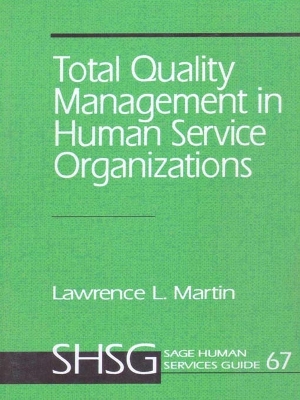Sage Human Services Guides
2 primary works • 3 total works
Book 67
Total Quality Management in Human Service Organizations
by Lawrence L. Martin
Book 71
Measuring the Performance of Human Service Programs
by Lawrence L. Martin and Peter M. Kettner
The authors of this comprehensive volume discuss why and how performance measures have become an integral part of managing programmes in the social services. They explain the various types of performance measures - including numeric counts, standardized measures and client satisfaction - and assess their advantages and disadvantages. A case study and exercises are a special feature of the book.


